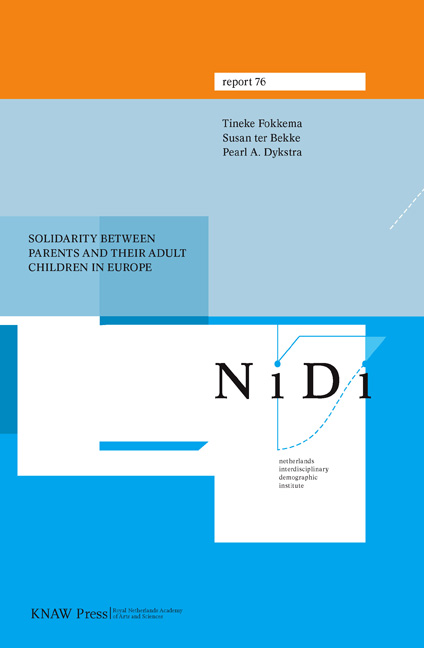
- Cited by 3
-
Cited byCrossref Citations
This Book has been cited by the following publications. This list is generated based on data provided by Crossref.
Popescu, Lorena and Pronzato, Chiara 2022. Mothers in the Labor Market. p. 123.
Labbas, Elisa and Stanfors, Maria 2023. Does Caring for Parents Take Its Toll? Gender Differences in Caregiving Intensity, Coresidence, and Psychological Well-Being Across Europe. European Journal of Population, Vol. 39, Issue. 1,
Sauter, Julia 2024. Norwegian Biological Parents and Stepparents’ Attitudes Towards Family Obligations in Middle and Old Age. Journal of Family Issues,
- Publisher:
- Amsterdam University Press
- Online publication date:
- January 2021
- Print publication year:
- 2008
- Online ISBN:
- 9789048521685
- Subjects:
- Sociology of Gender, Sociology




